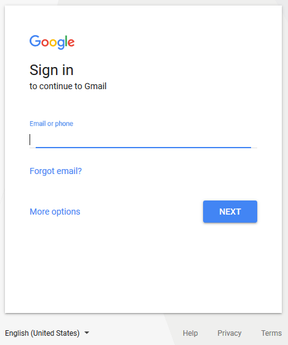Permission marketing is a type of advertising in which the people who are supposed to see the ads can choose whether or not to get them. This marketing type is becoming increasingly popular in digital marketing. Seth Godin first introduced the concept in his book “Permission Marketing: Turning Strangers Into Friends, And Friends Into Customers.”
Various anti-spam techniques are used to prevent email spam.

Email spam, also referred to as junk email, spam mail, or simply spam, is unsolicited messages sent in bulk by email (spamming). The name comes from a Monty Python sketch in which the name of the canned pork product Spam is ubiquitous, unavoidable, and repetitive. Email spam has steadily grown since the early 1990s, and by 2014 was estimated to account for around 90% of total email traffic.
Information overload is the difficulty in understanding an issue and effectively making decisions when one has too much information (TMI) about that issue, and is generally associated with the excessive quantity of daily information. The term "information overload" was first used as early as 1962 by scholars in management and information studies, including in Bertram Gross' 1964 book, The Managing of Organizations, and was further popularized by Alvin Toffler in his bestselling 1970 book Future Shock. Speier et al. (1999) said that if input exceeds the processing capacity, information overload occurs, which is likely to reduce the quality of the decisions.

Gmail is an email service provided by Google. As of 2019, it had 1.5 billion active users worldwide, making it the largest email service in the world. It also provides a webmail interface, accessible through a web browser, and is also accessible through the official mobile application. Google also supports the use of third-party email clients via the POP and IMAP protocols.
Internet security is a branch of computer security. It encompasses the Internet, browser security, web site security, and network security as it applies to other applications or operating systems as a whole. Its objective is to establish rules and measures to use against attacks over the Internet. The Internet is an inherently insecure channel for information exchange, with high risk of intrusion or fraud, such as phishing, online viruses, trojans, ransomware and worms.
Online advertising, also known as online marketing, Internet advertising, digital advertising or web advertising, is a form of marketing and advertising that uses the Internet to promote products and services to audiences and platform users. Online advertising includes email marketing, search engine marketing (SEM), social media marketing, many types of display advertising, and mobile advertising. Advertisements are increasingly being delivered via automated software systems operating across multiple websites, media services and platforms, known as programmatic advertising.
Ethan Haas Was Right (EHWR) is a viral marketing campaign developed by Mind Storm Labs to promote its role-playing game: Alpha Omega: The Beginning and The End. It involves an apocalypse taking place in the near future, those who will band together to survive it, and those who bring it down upon the world. The game received publicity online after it was erroneously connected with the J. J. Abrams film Cloverfield.

Tagged is a social discovery website based in San Francisco, California, founded in 2004. It allows members to browse the profiles of any other members, and share tags and virtual gifts. Tagged claims it has 300 million members as of 2014. As of September 2011, Quantcast estimates Tagged monthly unique users at 5.9 million in the United States, and 18.6 million globally. Michael Arrington wrote in April 2011 that Tagged is most notable for the ability to grow profitably during the era of Facebook.

Outlook.com, formerly Hotmail, is a free personal email service offered by Microsoft. This includes a webmail interface featuring mail, calendaring, contacts, and tasks services. Outlook can also be accessed via email clients using the IMAP or POP protocols.

The Gmail interface makes Gmail unique amongst webmail systems for several reasons. Most evident to users are its search-oriented features and means of managing e-mail in a "conversation view" that is similar to an Internet forum.
Video email, also referred to as email video or video in email, refers to the embedding of videos directly into the body of an email, without the need to attach files or click on a hyperlink to play them. Although video email providers have existed since the early-to-mid 2000s, it has become an increasingly popular medium for email marketing in recent years due to technological advancements, and is used to boost engagement rates. Several companies use video email to showcase their brand identity, send out newsletters, and announce events, product lines or launches. Examples of video email providers include EyeMail Inc., TailoredMail, MailChimp, Biteable and BombBomb.
David Shenk is an American writer, lecturer, and songwriter. He has contributed to National Geographic, Slate, The New York Times, Gourmet, Harper's, Wired, The New Yorker, The New Republic, The Nation, The American Scholar, NPR and PBS. In mid-2009, he joined TheAtlantic.com as a correspondent. He is a 1988 graduate of Brown University.
In the middle of 2009 the Federal Trade Commission filed a complaint against Sears Holdings Management Corporation (SHMC) for unfair or deceptive acts or practices affecting commerce. SHMC operates the sears.com and kmart.com retail websites for Sears Holdings Corporation. As part of a marketing effort, some users of sears.com and kmart.com were invited to download an application developed for SHMC that ran in the background on users' computers collecting information on nearly all internet activity. The tracking aspects of the program were only disclosed in legalese in the middle of the End User License Agreement. The FTC found this was insufficient disclosure given consumers expectations and the detailed information being collected. On September 9, 2009 the FTC approved a consent decree with SHMC requiring full disclosure of its activities and destruction of previously obtained information.

Gary Robinson is an American software engineer and mathematician and inventor notable for his mathematical algorithms to fight spam. In addition, he patented a method to use web browser cookies to track consumers across different web sites, allowing marketers to better match advertisements with consumers. The patent was bought by DoubleClick, and then DoubleClick was bought by Google. He is credited as being one of the first to use automated collaborative filtering technologies to turn word-of-mouth recommendations into useful data.
With the advent of the email, an array of anti-spam techniques have been developed in regards to email spam. Email spam is the unwarranted inundation of unsolicited bulk emails. These are methods created on the client arrangement of a situation, rather than the server-side.
SmartScreen is a cloud-based anti-phishing and anti-malware component included in several Microsoft products, including operating systems Windows 8 and later, the applications Internet Explorer, Microsoft Edge. SmartScreen intelligence is also used in the backend of Microsoft's online services such as the web app Outlook.com and Microsoft Bing search engine.
Acompli is a discontinued mobile app that allowed for user interaction with email messages as well as management of multiple email accounts in one programme. In addition, the tool also organized one's calendar and shared files. This application provided for integration with cloud storage platforms such as Dropbox, OneDrive, and iCloud; it also carried support for Microsoft Exchange and Gmail. Acompli launched on 24 April 2014. The startup company, which had $7.3 million in funding, was led by CEO Javier Soltero, J.J. Zhuang (CTO) and Kevin Henrikson.
A cold email is an unsolicited e-mail that is sent to a receiver without prior contact. It could also be defined as the email equivalent of cold calling. Cold emailing is a subset of email marketing and differs from transactional and warm emailing.
Spy pixels or tracker pixels are hyperlinks to remote image files in HTML email messages that have the effect of spying on the person reading the email if the image is downloaded. They are commonly embedded in the HTML of an email as small, imperceptible, transparent graphic files. Spy pixels are commonly used in marketing, and there are several countermeasures in place that aim to block email tracking pixels. However, there are few regulations in place that effectively guard against email tracking approaches.





